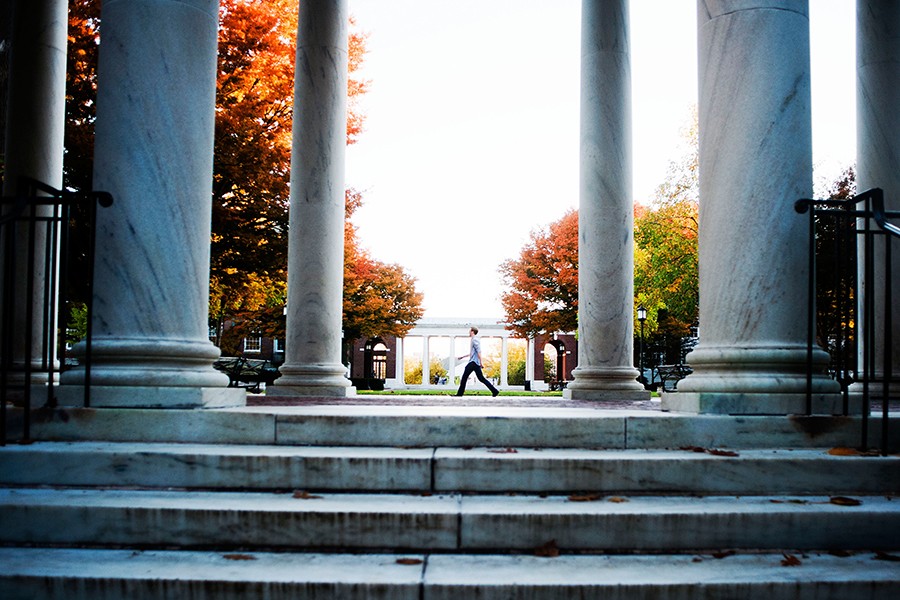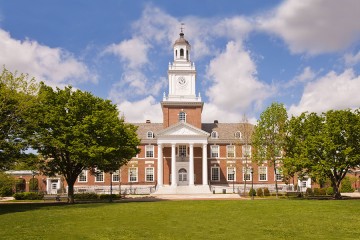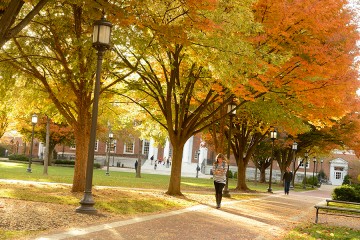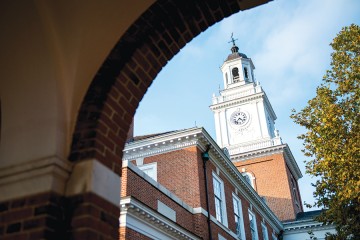Johns Hopkins University remained 10th among national universities in the annual U.S. News & World Report rankings of the nation's best colleges and universities, which were released Tuesday.
The university also tied for fifth in a U.S. News survey of high school guidance counselors, remained among the top 20 universities considered by the publication to be the best values for students, and retained its place among U.S. News' top 15 undergraduate engineering programs at a doctoral institution.
JHU's repeat top 10 recognition by U.S. News follows its inclusion among the top 20 in several prominent global university rankings that focus on research and overall academic excellence. This year, Johns Hopkins was No. 16 in the Shanghai Academic Ranking of World Universities and 17th in the QS World University Rankings. The Times Higher Education ranking, another measure of universities around the world, will be released later this month; last year, Johns Hopkins was ranked 11th by THE.
Johns Hopkins' commitment to the undergraduate experience both in and out of the classroom was one of the key goals of the Ten by Twenty, a report unveiled in 2013 laying out the university's vision and action plan for the remainder of the decade.
Academically, undergraduates now have more opportunities to engage with their professors, thanks to smaller classes—nearly three-quarters of undergraduate classes have fewer than 20 students—and exposure to the university's Bloomberg Distinguished Professors, world-class interdisciplinary scholars who teach undergraduates as part of their cross-specialty collaborations.
Outside the classroom, nearly two-thirds of Hopkins undergraduates conduct hands-on research in a variety of disciplines, from archaeology to microbiology, computer science to economics. Johns Hopkins students work with professors on faculty-led research projects and receive support for their own original research through a number of undergraduate research funding opportunities.
Johns Hopkins' commitment to undergraduate education has led to new and innovative academic offerings, including a recently created option that gives applicants the opportunity to be simultaneously admitted to both the undergraduate program and to a master's program at JHU's renowned Bloomberg School of Public Health or its School of Advanced International Studies in Washington, D.C.
The Johns Hopkins undergraduate experience is also becoming more accessible thanks to an institutional commitment to access, reflected in the university's financial aid program. The past five first-year classes have been admitted to Johns Hopkins on a need-blind basis, allowing the university to admit excellent students without regard to their families' ability to pay. Nearly 50 percent of all undergraduate students receive aid, and the average grant is almost $40,000. Institutional grant aid for undergraduates has increased 45 percent over the past six years.
Undergraduates have a new near-campus residential option this year with the opening of Nine East 33rd, a privately developed project on university-owned property. And the university career center has adopted a new service model designed to better serve the needs of both students and potential employers.
U.S. News has ranked colleges and universities annually for more than two decades. The ranking formula takes into account first-year student retention, graduation rates, admissions statistics, faculty resources, financial resources, and peer institution assessments. For national universities, the publication also measures how high school counselors rate the institutions.
Posted in University News












